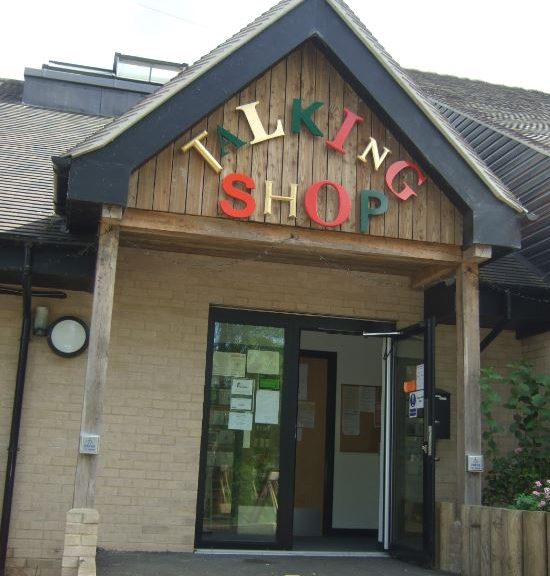We’re delighted to post this recent article by Naomi Stewart Hale.
As the UK poises to see when the final stage of lockdown will be lifted one group waits in anticipation for a different reason.
Over the last 15 months community shops have played a crucial part in the lives of villagers across the county. Many stores have reported record sales but what will happen once things are back to “normal”? Naomi Stewart Hale went to find out how things have changed and what the future looks like.
The community shop is not new. The first shop was opened in 1984 in Halstock, Dorset and many in Oxfordshire have been trading for over a decade. According to the 2020 “Better for Business” report by Plunkett, a not for profit supporting community led initiatives, across the UK there are now 372 community shops. But compared to the thousands of privately owned rural stores, the community shop is still a relative rarity in rural life.
Oxfordshire is home to 20 of them. Appleton to Islip, each shop is owned and managed by the community it serves. Shops have a 40-strong volunteer army with some employing paid managers and others choosing to be entirely volunteer run. Volunteer roles come in all shapes and sizes, from stacking shelves to managing social media. Many stores also house a post office. At the height of Covid, community shops were a lifeline.
“When people didn’t want to go to supermarkets, community shops felt safe” explains Tessa Hall, Community Buildings and Shops Adviser for Community First Oxfordshire (CFO), a regional community development charity supporting volunteer-led actions in Oxfordshire. “Community shops rose to the challenge from the beginning.” Many, including Marcham and Tackley, quickly set up a delivery service for the self-isolating and elderly.
But it’s not solely the elderly that these stores support. Shops have found new custom in those furloughed or working from home. Not only customers but also volunteers. As demand rose, gaps had to be filled. Many stores have seen a new contingent of young professionals and students.
In Brightwell Cum Sotwell, 19-year-old Ivy started when she was furloughed from her restaurant job. “My boyfriend’s granny was already working in the shop and encouraged me to volunteer. I’ve really enjoyed it. For some residents, getting their daily newspaper is an important routine and it makes me happy we’re providing that service.”
In addition to managing volunteer changes, several stores struggled with supplies. “We used to have a weekly supermarket delivery but during lockdown we couldn’t get the online slots and we had to diversify” explains Alan, a volunteer of some 12 years at Iffley Community Shop.
Local suppliers such as Wessex Mill Flour, based in Wantage and Cornfield Bakery in Wheatley, proved popular. “When everyone was making bread, the flour was flying off the shelves,” adds Alan.
The rise of microbusinesses also brought about hyper-local food such as eggs and honey with community shops being a valuable launch platform for these fledgling enterprises.
But these are not merely places to buy groceries. “Community shops exist to alleviate the issues of the community. That might be employment, meeting space or a café. Each business decides what works for them”, explains Hannah Barrett, Community Business Team Leader for Plunkett.
At the Talking Shop in Sandford, as the name suggests, the concept of the shop was to bring a much-needed “inclusive social hub” to the village and surrounding areas. Working with Oxford mental health charity Restore, among other initiatives, the shop offers “a constructive and rewarding volunteer programme” for the residents of nearby Littlemore Mental Health Centre.
But what will happen next for these community outlets? Under social distancing guidelines, changes had to be made. Restricted numbers, one-way systems and traffic light entry were quickly introduced. Perspex screens became the norm. Will all of these precautions be scrapped when “freedom day” comes? Hannah isn’t so sure.
“Like all things with these stores, the committee will listen and adapt to the needs and concerns of the community. I think several shops will continue their delivery service.”
The biggest question though is how to maintain the buoyant sales enjoyed in the last year or so. Manager of Brightwell Cum Sotwell Village Store, Celia, hopes the appetite to shop locally will continue.
“So many of our customers have said to us “what would we have done without you?” but we have already seen a drop in sales. Without the shop some residents might not have been able to stay in the village. We don’t expect people to do their weekly shop here but buying the essentials will keep the shop alive.”
Hannah agrees, “This is a hot topic and we’re running a series of webinars to help stores maintain momentum. A key argument for shopping locally and buying local produce is the environmental benefit and this has never been more important.”
It’s true that with stores often stocking environmentally friendly brands such as Bio-d and Field Fare as well as home grown produce, shopping on your doorstep offers a far better carbon footprint. And with a population set to increasingly work from home more often, it’s likely they will continue to prove a desirable option for rural communities. Plunkett have already seen promising signs.
“We are forecasting substantial growth in community shops in the next 1-2 years . We had 100 enquiries in February 2021 which is double what we saw last year,” reports Hannah.
Tessa sums up the value of the community shop, “It’s more than just a shop. It’s a hub where things happen. It brings vibrancy and spirit to rural living.”


